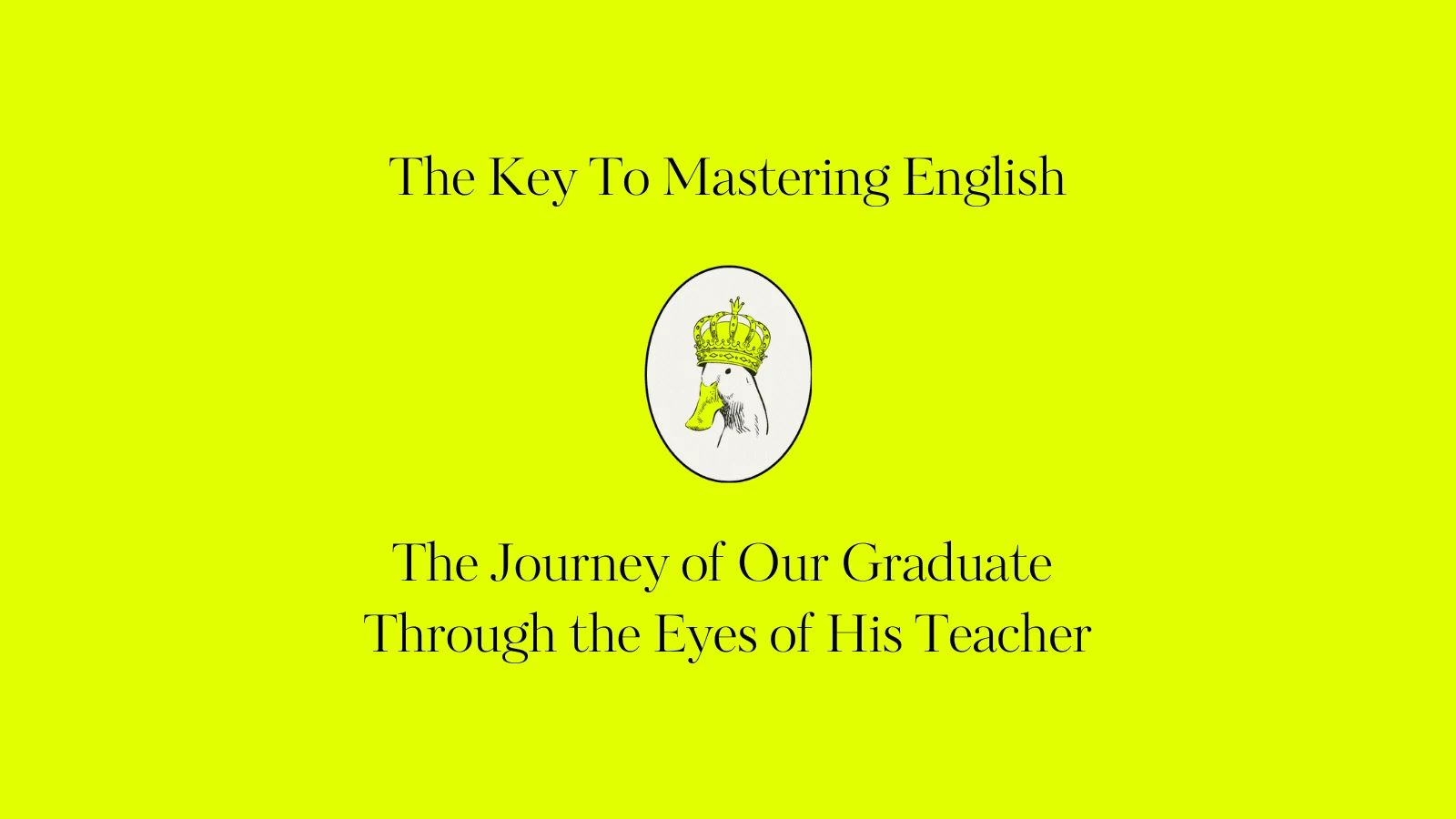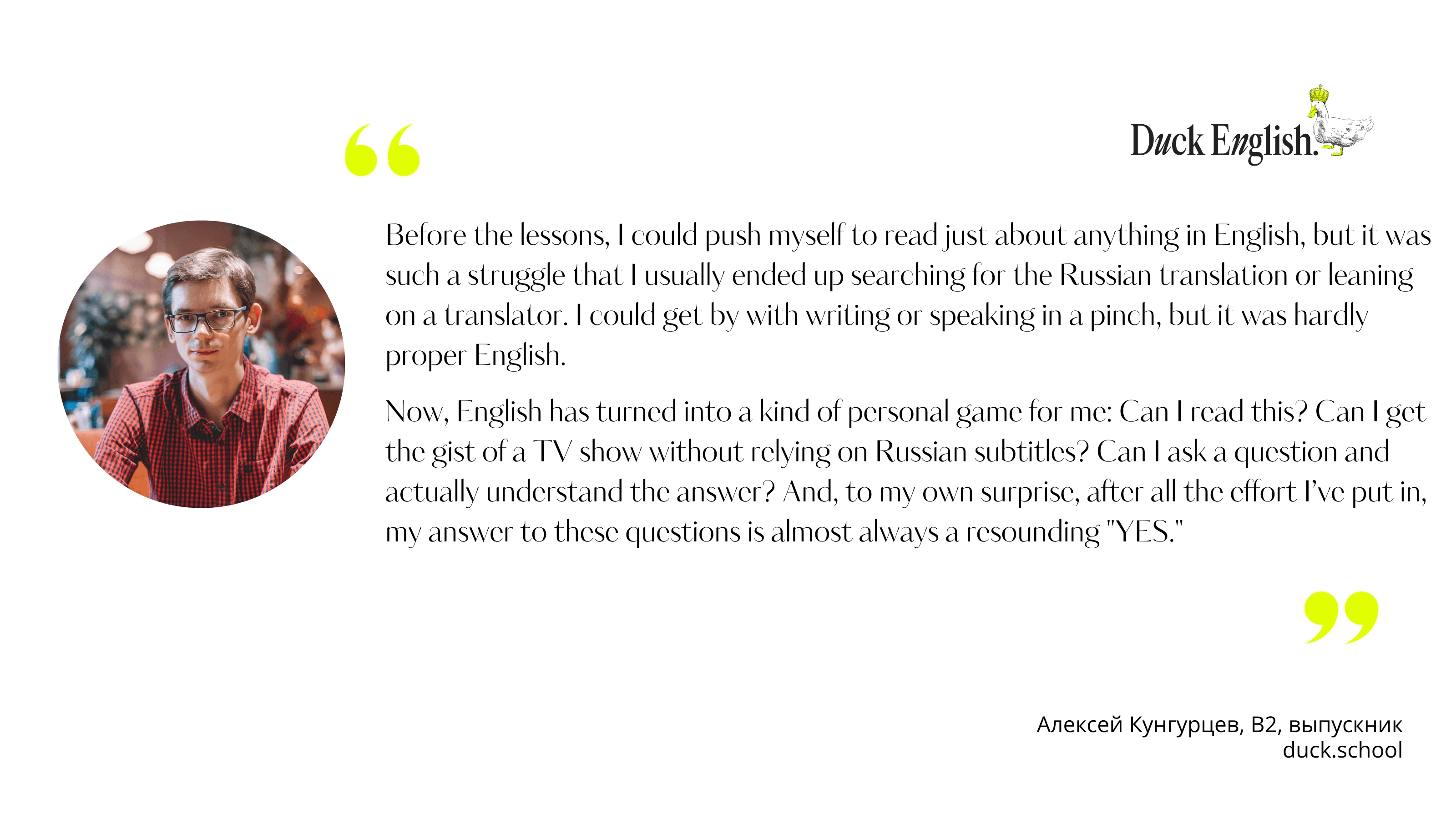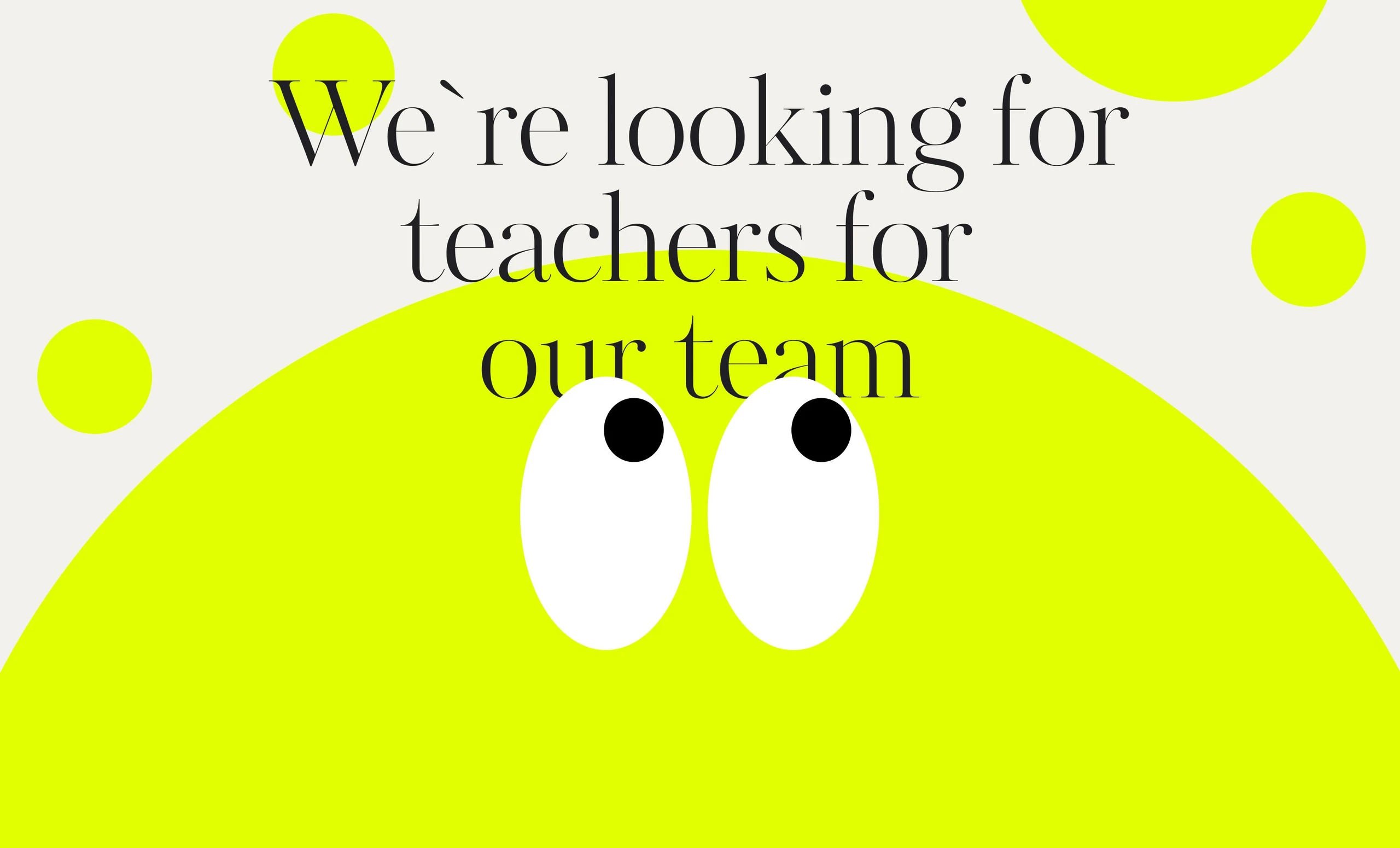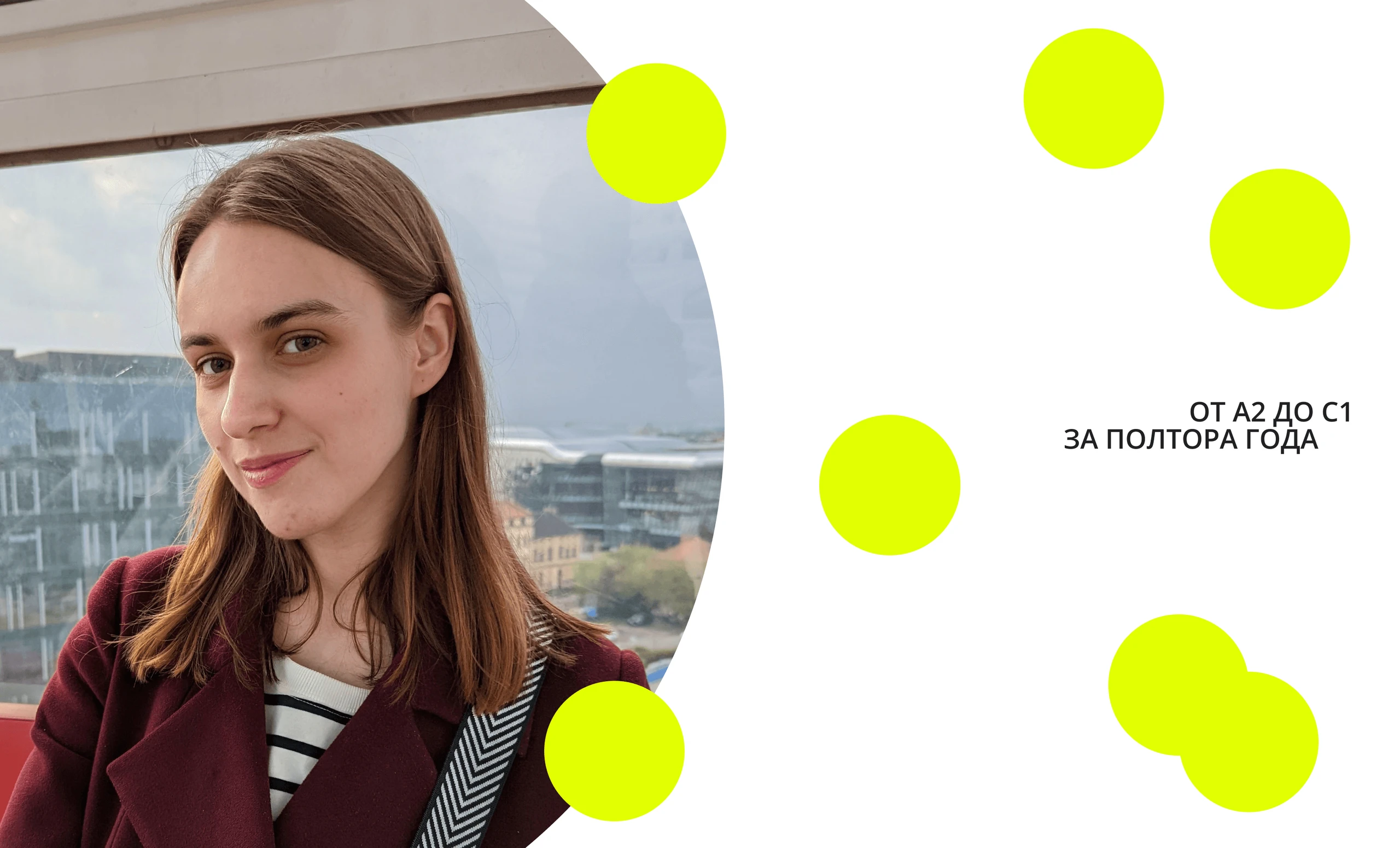03 Oct. 2023
The key to mastering English lies in ... putting in the work.

During an interview, Alexey told me that he didn't really improve his language skills in school or university because the classes were either uninteresting or useless (sometimes both), and the courses he tried were neither effective nor varied for him, which is why he came to us.
I'll be honest, such backstories no longer surprise me, and I was certain that by the end of his course, he would go through a tremendous transformation (spoiler: which he did).
Both in the interview and in our first lessons, Alexey was shy, struggled to even finish a sentence, and just faded away. Despite passing the entrance test fairly well and demonstrating some understanding of grammar, when it came to speaking, he couldn't express a single coherent thought. Sometimes this was because he was embarrassed, sometimes due to a lack of vocabulary, and sometimes because he simply didn't understand how to put everything together grammatically, which led to frustration and eventually he stopped trying altogether.
This is common when people have picked up information from various places throughout their life, but never had someone to give them proper feedback and continually encourage them to practice the theory they've learned. That's exactly what we tackled.
In our lessons, we took a gentle, unobtrusive, and slow approach to working through the shyness and language barrier, and over time, of course, this issue was resolved.
As Alexey grew more confident, I started demanding not just any attempt at conveying his thoughts but also independent work on refining them. We relentlessly and systematically practiced any information, whether grammatical structures he knew in theory or something entirely new, in speech. We spoke, corrected, spoke again, discussed, improved, and spoke yet again. Even things Alexey knew well theoretically, he couldn't always apply in practice, so our main task became not just learning new material but also refining what he already knew until it became second nature. Along the way, we worked on his pronunciation, which also had room for improvement, and we focused on incorporating the phonetic aspect into his speech.
After a few months, he wrote his first feedback, in which he mentioned he "likes the variety of activities but also feels a systematic approach: here we learned a new tense, there some vocabulary, and now when answering questions we try to combine it all together, or recall something from past lessons; it's great that the teacher cares."
This reassured me once again that we were doing everything right, and Alexey himself could feel how the puzzle of his scattered knowledge was becoming something whole.
At the intermediate level, where he started, he has filled in the gaps, built up a basic vocabulary, and consequently—gained a boost in self-confidence. The knowledge and active skills he acquired helped him move on to the next level (upper intermediate) with ease and barely notice the jump in complexity that undoubtedly exists between them.
By that stage, it was crystal clear to me: Alexey was the ideal student from a teacher’s perspective. Having reached the upper intermediate level, we had already nailed one of our primary goals: bringing his knowledge fluently into conversation. So, we dived into the next challenge with gusto—piling on new knowledge, folding in trickier structures and richer vocabulary—phrasal verbs, idioms, and complex terminology from business, news, and medicine. It was tough but utterly fascinating!
Alexey was the epitome of dedication, always showing up prepared and eager, absorbing new information like a sponge—be it new words or intricate grammar—and striving to apply them actively in conversation.
At the upper intermediate level, the homework really ramps up because the learning takes a different turn. We're past expecting just coherent expression of thoughts; now, we look for sophisticated speech, a juggle of high-level constructs. That means diving into a whole range of assignments—from basic exercises and presentations to spontaneously crafting stories. Alexey was outstanding in this regard; our sessions were dynamic, and I could see him transforming with each one.
Our lessons started with a quick hello, followed by a non-stop, ninety-minute workout: speaking, more speaking, speaking with new grammar and vocabulary, revisiting old topics to refresh some of that vocab, and, of course, speaking yet again.
But that wasn't all we did. We read—starting with adapted, relatively easy material, then moving on to unadapted texts (I always try to pick out books for each student that are challenging, allow them to see their own growth, show them the complex stuff they can now handle with ease, and of course, stuff that I think they'll find intriguing). We did a lot of listening, and naturally, a great deal of writing. By the way, Alexey's writing is now nothing short of splendid, both in quality and in depth of thought (seriously, his plot twists and turns could give the most popular blockbusters a run for their money).

I catch myself thinking that I'll miss that tremendous energy that came from him and watching his progress unfold in real-time (through the laptop camera!). But graduating students is part of the natural cycle of teaching, and all that’s left is to take pride in their successes and revel in the proof that with the right effort, anything is possible, and any language can be mastered. I have no doubt that with his current level of English, any task is within his reach, and language will no longer be a barrier to achieving new heights in his life.
0%



